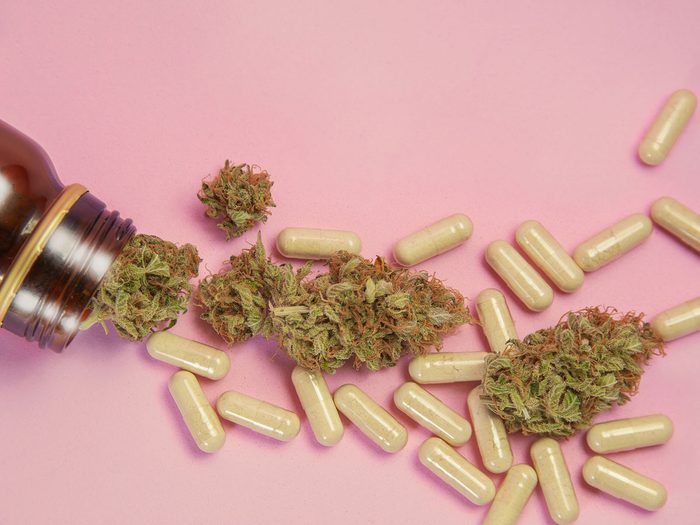
What to know about CBD for pain and anxiety
Long before cannabis became legal for recreational use in Canada, it was prescribed by physicians to treat the symptoms of chronically ill individuals—including cancer patients who wished to relieve nausea from chemotherapy. Thanks to legalization, more research will be conducted into the many additional medicinal benefits of cannabidiol (a.k.a. CBD) and tetrahydrocannabinol (THC), the two most well-known cannabinoids out of over 100 identified cannabis compounds. For now, medical cannabis—particularly CBD-dominant strains—is commonly used to treat “anxiety, pain, appetite loss, nausea and vomiting, sleep disorders and seizures,” says Dr. Hance Clarke, Director of Pain Services at Toronto General Hospital and member of the Shoppers Drug Mart Advisory Board on Medical Cannabis. “It’s also commonly prescribed for inflammatory conditions such as ulcerative colitis and Crohn’s disease, fibromyalgia and rheumatoid arthritis,” says Ilana Platt, PhD, Vice President of Innovation & Global Regulatory Affairs at CannTrust, and may even affect the progression of ALS (Lou Gehrig’s disease).
While it’s possible that medical marijuana could be the right treatment for you and your symptoms, it’s time to familiarize yourself with eight common misconceptions about CBD before you go running to your doctor.

Myth #1: CBD has therapeutic benefits and THC does not.
“Many people assume that CBD has therapeutic benefits and that THC is for getting ‘high,’” says Platt. “But THC has as much medicinal value as CBD, and combined they can help patients with common issues such as chronic pain and insomnia.” Many CBD-dominant strains of cannabis also contain some THC.
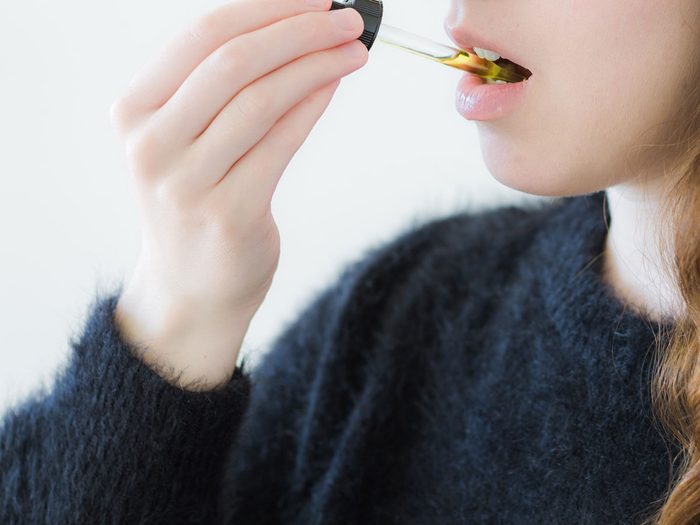
Myth #2: CBD is non-psychoactive.
While it’s true that THC produces the euphoric effect generally associated with getting high, “CBD has psychoactive effects as well,” says Platt. CBD impacts mood and can be effective for treating depression and anxiety, so it does affect the user’s mental state—meaning it should be considered a psychoactive compound.

Myth #3: CBD is a sedative.
Though CBD can be used to treat insomnia, it’s not actually a sedative. Instead, CBD helps to regulate the body’s stress responses and alleviate anxiety, which means a user will be better able to sleep at night. In small doses, CBD may even increase alertness and reduce daytime sleepiness.
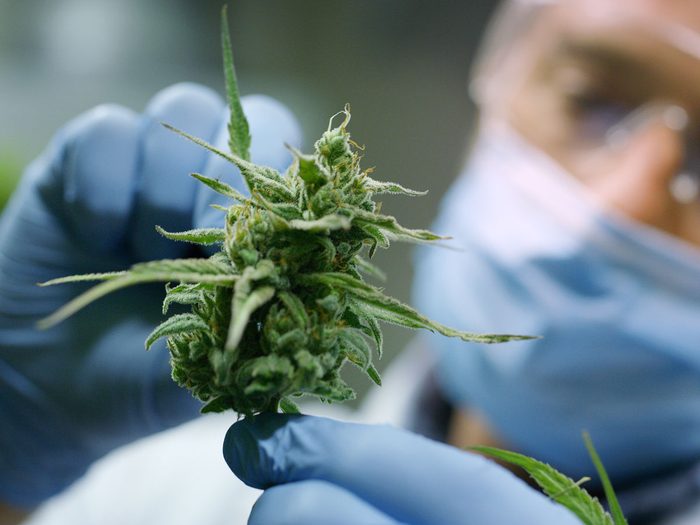
Myth #4: CBD is safe for anyone over the legal age limit.
Many people could potentially benefit from CBD’s medicinal properties, but medical cannabis still “may not be appropriate for those with a history of psychosis, psychiatric disorders and adolescent or developing brains,” says Dr. Clarke. “Other factors to consider include severe cardiovascular disease, liver disease or kidney disease.” It’s important to work with a healthcare professional to identify if medical cannabis is the right treatment for you.
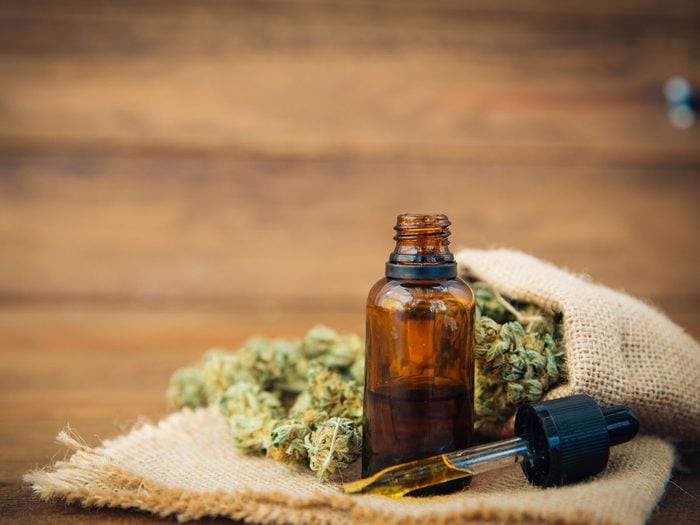
Myth #5: CBD is for adults only.
Cannabis use is generally not recommended for adolescents, but it is sometimes prescribed by physicians for children suffering seizures due to epilepsy. “We have children using half a bottle of high-dose CBD per day,” says Platt.
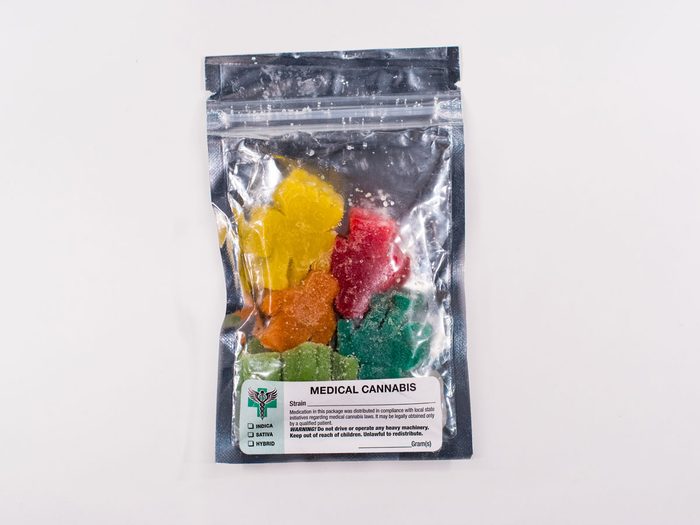
Myth #6: All forms of CBD will affect the user in the same way.
Mode of consumption matters. “For immediate relief, inhaling is more effective,” says Dr. Clarke. “However, for ongoing chronic therapy, oils and capsules provide a more sustained level of symptom of relief, while also preventing the possible negative consequences of smoking.” In April, legislation will come through that will allow producers to develop edible cannabis items such as gummies, chocolates and beverages, says Platt, meaning consumers will be able to choose from even more well-regulated forms of cannabis.
Thinking about CBD for back pain? Be sure to read up on these 14 medical reasons for lower back pain.

Myth #7: Higher dosing means greater therapeutic benefits.
The dosage of CBD that your body requires can depend on a wide variety of factors, from your age to the condition you’re trying to treat. For certain conditions, using more than the necessary dose may even result in the CBD becoming less effective, not more. Listen to your physician and follow the general rule of “start low and go slow,” says Platt, whether you’re using cannabis recreationally or for medicinal purposes, and “wait at least 4 hours before taking a second dose,” she says. “Daily dosage is generally divided into three or four administrations, or one dose before bedtime.”

Myth #8: Now that cannabis is legal in Canada, everyone has access to CBD for medicinal use.
“All licensed producers must adhere to good production practices as outlined in the Health Canada regulations,” says Platt, which means you can be sure that you’re purchasing a quality product—whether CBD-dominant or not—if you buy from a licensed cannabis producer. That said, “medical cannabis is specifically authorized by health-care practitioners to treat a variety of conditions,” says Dr. Clarke. “To access medical cannabis, patients need a medical document from their healthcare practitioner, similar to a prescription. If you self-medicate with recreational cannabis products, you may not know your correct dose or what factors might influence your reaction to the treatment, which can result in unwanted negative side effects.”
If you think CBD could provide relief for anxiety, chronic pain, inflammatory diseases or any other condition you may suffer, your next step is to talk to a healthcare practitioner. If you live in Ontario, you may wish to then visit shoppersdrugmart.ca/cannabis or visit your local Shoppers Drug Mart to get referred to a specialized cannabis care advisor who can help you find the cannabis brand, strain and format that will work best for your needs. If you don’t live in Ontario, visit O Cannabis to book an online consultation with a trained nurse practitioner who can guide you through the process of product selection.
Next, read up on these health myths that turned out to be true.
